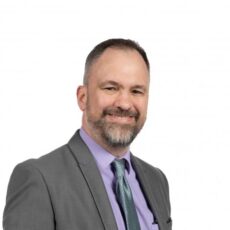
Energy Economics and Finance Seminar
Event Summary
The seminar series in Energy Economics & Finance (EEF) is jointly organized by Wharton’s Business Economics and Public Policy Department, the Kleinman Center for Energy Policy, and Wharton’s Business, Climate and Environment Lab. The scope of the seminar includes regulation and policy papers. The scope of the seminar also includes environmental and transportation issues, as long as there is a connection with energy. Sessions are biweekly on Mondays from 3:30 p.m. – 4:30 p.m.
Snacks, beer, and wine will be served after the seminar!
For Fall 2023, the seminar will be held in-person in the Kleinman Center Classroom (Fisher Fine Arts Building Room 306).
Find and add a Google Calendar version of the schedule on the BEPP seminar page.
To sign up for the seminar, please send your name, email, and affiliation to Dhivya Kaushik: dhivya@wharton.upenn.edu
Polar Amplification in a Moist Energy Balance Model: A Structural Econometric Approach to Estimation and Testing
Abstract: Poleward transport of atmospheric moisture and heat play major roles in the magnification of warming in poleward latitudes per degree of global warming, a phenomenon known as polar amplification (PA). We derive a time series econometric framework using a restricted vector error correction model (VECM) and an identification strategy to recover the parameters of a moist energy balance model (MEBM) similar to those in the recent climate science literature. This framework enables the climate econometrician to estimate and forecast temperature rise in latitude belts as cumulative emissions continue to grow as well as account for effects of increases in atmospheric moisture predicted by the Clausius-Clapeyron equation, which drives spatial non-uniformity in climate change. Non-uniformity is important for two reasons: climate change has unequal consequences that need to be better understood and amplification of temperatures in polar latitudes has a higher potential to trigger irreversible climate tipping points.
Zack Miller
Professor, University of MissouriJ. Issac (Zack) Miller is a professor and associate chair of economics at the University of Missouri. His research and teaching interests focus on time series analysis and econometrics.
Fall Seminar Dates:
- 9/25: Brigitte Roth Tran, Federal Reserve Bank of San Francisco
- 10/16: Johannes Gessner, University of Pennsylvania
- 10/23: Zack Miller, University of Missouri
- 11/6: Thom Covert, University of Chicago
- 12/4: Belinda Archibong, Columbia University

